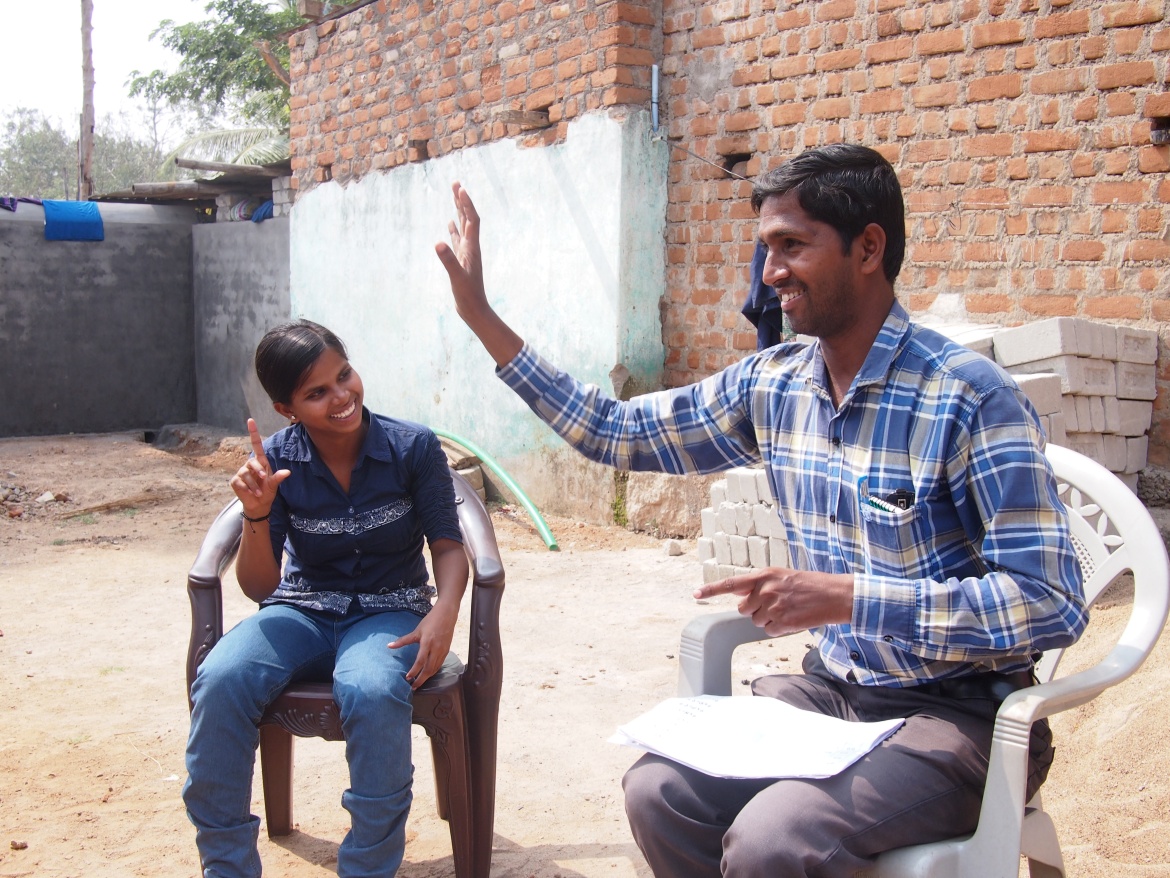Resource Type
Blog
This blog was originally posted on Global Partnership for Education on November 01, 2022 by Joanna Clark, Deaf Child Worldwide
Read how Deaf Child Worldwide is working to provide better emotional wellbeing support to deaf children and young people in impoverished rural areas in India and Bangladesh.

Credit: Deaf Child Worldwide
In the wake of World Mental Health Day, which was observed on October 10, I’d like to talk about a project we’ve started with our partners in India and Bangladesh, to provide better emotional wellbeing support to deaf children and young people. In the impoverished rural areas where Deaf Child Worldwide (DCW) operates, mental health services of any description are practically non-existent.
Our project came about when our partner organizations noticed that the deaf children and young people they worked with often seemed to exhibit emotional problems, ranging from withdrawal and isolation to aggressive acting out. Needless to say, these extremes of behavior had a negative effect on their education.
Barriers to language and communication
These behaviors stem from the language and communication barriers that deaf children and young people we work with can face.
Late diagnosis and a lack of access to hearing technology means they often have significant language delays. And because they don’t get the support they need, their families, schools and communities struggle to communicate with them. There are a number of factors at play:
- They face daily struggles to be understood, even by their own family. This can understandably lead to feelings of isolation, loneliness and frustration.
- Often a deaf child is the only deaf person in their family, their school or even their whole community, so there’s no-one to share their feelings with.
- Deaf children are sometimes bullied or experience stigma, discrimination or inequality because of their deafness.
- In stressful situations, many deaf children are left anxious because no-one has adequately explained the stress inducing situation to them.
The workers on the frontline
In South Asia, our partners employ deaf role models (DRMs). DRMs are deaf adults who support deaf children to help them develop language and communication skills and build literacy. This can include giving sign language lessons, making schoolwork more accessible (for example, through the visual materials developed by our partners) and keeping them informed about wider issues in the community.
Deaf children frequently express feelings of anger, frustration and withdrawal to the DRMs. In situations such as these, deaf children may develop more serious mental health issues if their concerns are not addressed at an early stage. But intervention requires a level of knowledge which DRMs currently don’t possess.
More support is needed, not only from deaf role models and mentors, but also from services that are there to offer mental health support, most of which are not accessible to deaf young people.
Early intervention is key
This is why Deaf Child Worldwide has been working with Basic Needs India (BNI) since the end of 2021, to train DRMs in mental health awareness.
The training takes a process-oriented approach and begins by addressing the DRMs' own inner strengths, thus triggering their self-confidence. It then explores the emotional and psychosocial development of children and young people.
The DRMs also learn about how families and society influence human behavior, and how to help deaf children and their families understand each other better.
Thanks to this ongoing work with BNI, DRMs will soon be able to provide a basic level of emotional wellbeing support to deaf children and recognize the symptoms that are severe enough to be referred to professional mental health services. The training is continuing through 2022 and we’ll be assessing the outcomes periodically with BNI.
An emotional safety net
The training will enable DRMs to better understand the emotional needs of the deaf children they work with, who in turn will have the safety net of an individual with whom they can communicate their feelings.
As part of our deaf awareness sessions with families, we explain the frustrations of deaf children, many of which are linked to communication. This gives them an insight into why their child might be acting out.
Deaf awareness is also discussed in parents’ groups, where the more experienced parents counsel others. The plan is to extend this into training for a group of hearing individuals, either staff or parents, who will become ‘lay counsellors’.
For now, by training the DRMs to support the mental health of deaf children, we’re hoping the children will feel more secure, with parents who understand their emotions better.
Wider still, it is hoped that the project will result in a greater sensitivity and understanding on the part of whole communities of the emotional challenges that deaf children face.
An unrealizable dream?
Accessible and robust mental health services for deaf children and young people in the far corners of the countries where we work may yet be a realizable dream, but the aim of DCW, together with BNI, is to provide at least a basic level of mental health support.
As the project is rolled out, DCW and BNI intend to train teachers to provide a basic level of emotional wellbeing support to their deaf pupils, in the same way that the DRMs now can.
The organizations are also confident that in time, the community-based approach they have devised can be scaled up to a national level.
